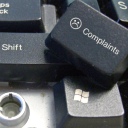Stephen M. Kramarsky
Stephen M. Kramarsky is a member of Dewey Pegno & Kramarsky. His practice focuses on complex commercial and intellectual property litigation.
November 17, 2011 | Corporate Counsel
Ardis Court Orders Return of Social Media PasswordsIntellectual property law is notoriously bad at keeping up with the technology it is supposed to govern, particularly where the internet is concerned. Recently, issues have begun to surface in cases involving the ownership of social media content, which traditional intellectual property law struggles to address.
By Stephen M. Kramarsky
11 minute read

July 16, 2013 | New York Law Journal
What Is Fair Use? Google May Have the AnswerIn his Intellectual Property column, Stephen M. Kramarsky, a member of Dewey Pegno & Kramarsky, writes: Recently, a true heavyweight entered the fair use arena. Google has asserted that its massive Google Library Project is protected by fair use, and the Second Circuit's July 1st decision in 'Authors Guild v. Google' suggests that large scale fair use may be a viable model, though perhaps not a business model.
By Stephen M. Kramarsky
12 minute read

May 15, 2012 | New York Law Journal
'Viacom v. YouTube': How Safe Is the 'Safe Harbor'?In his Intellectual Property column, Stephen M. Kramarsky, a member of Dewey Pegno & Kramarsky, writes that probably the most fundamental change in the Web over the last 10 years has been the rise of "user generated content," that is, the shift from websites that present packaged content created or controlled by the website owner, to websites that are essentially services for publishing content uploaded by others.
By Stephen M. Kramarsky
11 minute read

November 20, 2012 | New York Law Journal
Courts Struggle With Limits of DMCA Anti-CircumventionIn his Intellectual Property column, Stephen M. Kramarsky, a member of Dewey Pegno & Kramarsky, writes that courts initially read the "anti-circumvention" and "anti-trafficking" provisions of the Digital Millennium Copyright Act extremely broadly and allegations relating to them have become staples of digital intellectual property litigation, providing, among other things, a clean pathway into the federal courts even in the absence of an underlying copyright infringement. But some recent decisions have suggested that view may be narrowing.
By Stephen M. Kramarsky
13 minute read

January 19, 2012 | Legaltech News
No Legal Recourse for Targets of 'Gripe Sites'Damage done in the court of internet opinion is all but impossible to reverse, notes attorney Stephen M. Kramarsky, and targeted companies may even find themselves without legal recourse.
By Stephen M. Kramarsky
12 minute read

November 17, 2011 | Legaltech News
'Ardis' Court Orders Return of Social Media PasswordsWho controls social media passwords is at the heart of a recent Southern District of New York decision, Ardis Health, LLC et al. v. Nankivell, writes attorney Stephen M. Kramarsky.
By Stephen M. Kramarsky
11 minute read

January 22, 2013 | New York Law Journal
Evolution of ISP Subscriber Discovery: Courts Seek a BalanceIn his Intellectual Property column, Stephen M. Kramarsky, a member of Dewey Pegno & Kramarsky, writes that one of the most basic questions for any party considering litigation is "Who is my defendant?"
By Stephen M. Kramarsky
13 minute read

March 13, 2012 | New York Law Journal
Court Analyzes and Enforces Facebook's Terms of ServiceIn his Intellectual Property column, Stephen M. Kramarsky, a member of Dewey Pegno & Kramarsky, writes that Facebook has what most practitioners would consider a bullet-proof clickwrap signup system, but a Southern District Court recently saw it differently and ended up doing an extensive analysis reflecting substantial discomfort with the process.
By Stephen M. Kramarsky
12 minute read

July 21, 2011 | Legaltech News
N.Y. 'Hot News' Tort May Be Shrinking as New Media GrowsA proprietary news story seems to be at odds with our information-dense society, but the New York "hot news" tort survives, providing a separate right of action for the unauthorized commercial use of material that cannot otherwise be the basis for an infringement action under the Federal Copyright Act. But the tort's precise scope, writes attorney Stephen M. Kramarsky, is ripe for debate.
By Stephen M. Kramarsky
11 minute read

November 15, 2011 | New York Law Journal
'Ardis' Court Orders Return of Social Media PasswordsIn his Intellectual Property column, Stephen M. Kramarsky, a member of Dewey Pegno & Kramarsky, writes that business people (and the lawyers who advise them) must be especially careful to cover every possible contingency in agreements governing their online intellectual property or risk falling into the gaps in the protection offered by existing law.
By Stephen M. Kramarsky
11 minute read
Trending Stories
- 1Call for Nominations: Elite Trial Lawyers 2025
- 2Senate Judiciary Dems Release Report on Supreme Court Ethics
- 3Senate Confirms Last 2 of Biden's California Judicial Nominees
- 4Morrison & Foerster Doles Out Year-End and Special Bonuses, Raises Base Compensation for Associates
- 5Tom Girardi to Surrender to Federal Authorities on Jan. 7
More from ALM
- Scan In Progress: Litigators Leverage AI to Screen Prospective Jurors 1 minute read
- Legal Speak at General Counsel Conference East 2024: Match Group's Katie Dugan & Herrick's Carol Goodman 1 minute read
- Legal Speak at General Counsel Conference East 2024: Eric Wall, Executive VP, Syllo 1 minute read



